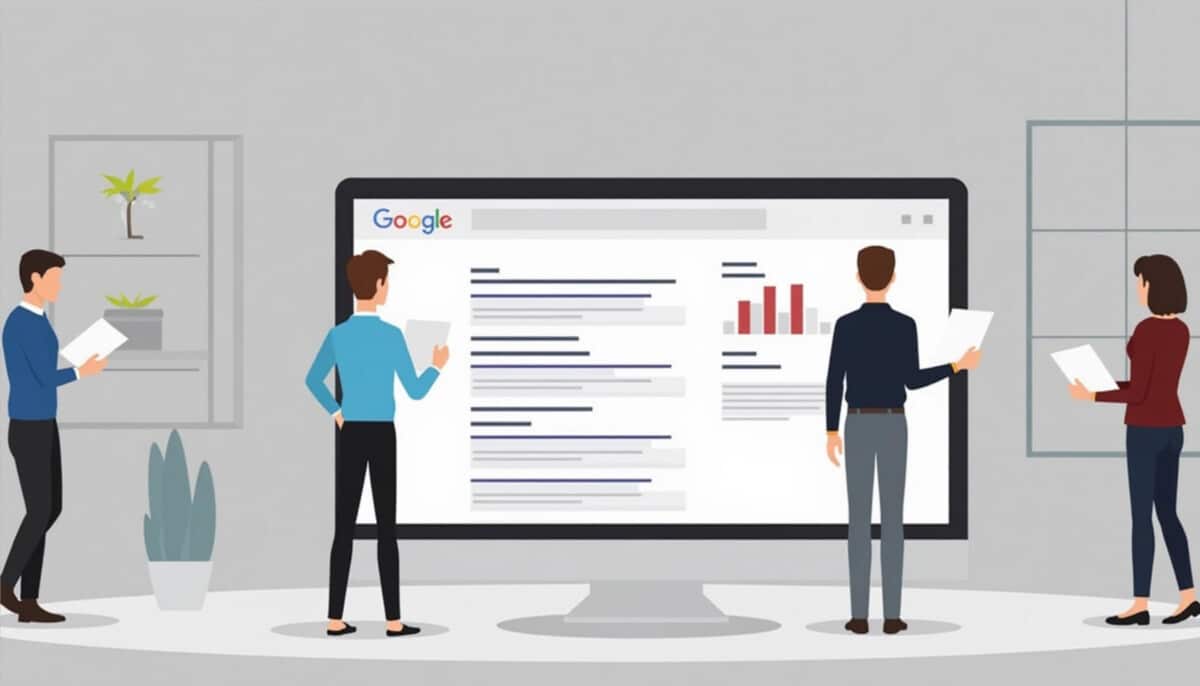New research from BrightEdge reveals an intriguing shift in how Google’s AI Overviews (AIO) lines up with traditional organic search results. The headline number is clear: 54% of AI Overviews citations match pages that already rank organically. That leaves 46% that don’t. So what does that actually mean for SEOs and publishers? Let’s unpack it.
FastSearch and RankEmbed — a different animal
Google’s FastSearch system follows signals from a deep-learning model called RankEmbed, which is trained on search logs and third-party quality raters. The search logs are essentially user behavior data — what Google calls “click and query data.” Clicks tell RankEmbed which documents users tend to choose for particular queries, and that behavioral signal can shape what the model surfaces. It’s not learning like a human; it’s pattern recognition driven by lots of click data. So when AIO shows a citation, it might be doing so because FastSearch considers that page semantically appropriate and aligned with user behavior — not necessarily because that page scores high on traditional SEO metrics like backlinks.
Is the 54% overlap meaningful?
Maybe. The 54% overlap doesn’t prove that AIO is just recycling organic rankings, and it doesn’t prove AIO is independent either. It could be that FastSearch retrieves results similar to classic organic search about half the time because both systems are picking up on the same signals of user preference and relevance. Or it could be an artifact of FastSearch’s emphasis on speed and semantic matching rather than link-based authority. Either way, the takeaway nudges toward a renewed focus on content that matches user intent, format, and expectations.
Vertical differences matter
Not all search verticals behave the same. BrightEdge’s data shows wide variance by topic:
- Healthcare: 75.3% overlap (up from 63.3%).
- Education: 72.6% overlap (huge jump from 19.4%).
- Insurance: 68.6% overlap (up from 20.9%).
- E-commerce: 22.9% overlap (virtually unchanged).
Why the disparity? One plausible explanation is that YMYL verticals — healthcare, education, insurance — have a smaller pool of authoritative sites that users expect to see. FastSearch may be more likely to surface those recognized authorities because users consistently click them, so the overlap with organic results rises. E-commerce, by contrast, is more diverse; users may expect product listings, reviews, or storefront pages, and AIO seems to diverge from classic organic rankings there.
Practical implications for publishers and SEOs
Focus on matching user expectations. If people searching about a product want a product page, don’t serve them an essay. If they want a how-to, a video or tutorial might be what wins clicks. FastSearch appears to reward the content type and semantic fit more than traditional link signals. That suggests publishers should invest in clarity of intent, structured content, and formats users prefer.
Also, authority still matters in some niches. In healthcare and insurance, being one of the recognized, high-quality sites may give you a foot in both the organic and AIO doors. In e-commerce, you might need fresh tactics — think product data quality, user signals, and content designed to capture the exact query intent.
A final thought
This is evolving. When AIO first launched, overlap with classic organic search was about 32%; now it’s 54% overall. That trajectory suggests Google’s AI-driven retrieval is settling into patterns that sometimes align with organic rankings and sometimes diverge. So what should you do? Keep the basics: create useful, intent-matching content and pay attention to the content formats your audience actually clicks.
Did this shift change how you’ll approach content or SEO? Leave a comment with your take, and follow Outreach Bee on Facebook, X (Twitter), or LinkedIn to stay in the loop.
Before you leave, learn how to unlock high-converting Google Ads with smarter AI prompts.
Sources:
- www.brightedge.com/resources/weekly-ai-search-insights/rank-overlap-after-16-months-of-aio
- www.searchenginejournal.com/google-ai-overviews-overlaps-organic-search-by-54/557317/



Enterprise SEO 2026: 5 AI Trends That Will Define Your Strategy
The 2025 SEO Shakeup: What Actually Worked (and What Didn’t)